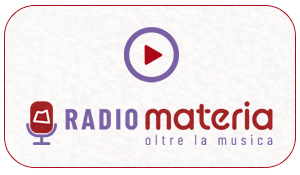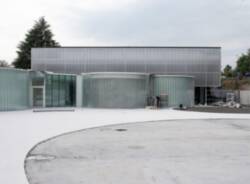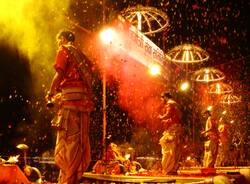Remembering rests on our words
It is not correct to use the word “holocaust”, when speaking about the extermination of the Jews in Europe. Primo Levi used the term reluctantly. The correct word is “shoah”.
On “Holocaust Day”, there is always something grotesque about some aspect of communication. Two years ago, a middle school in our province wanted to reproduce a death camp (fortunately, they did not succeed). Such realism is pointless, is in poor taste, but above all, is of little educational value. This year, while seeking to highlight their own initiatives, there are some who have spoken of “bringing the holocaust (which, incidentally, is the wrong term) to the stage”, which we hope will not take place, as it will be somewhat worrying for the general public and for the forces of law and order. Apart from these extreme cases, most of the initiatives for “Holocaust Day” are very interesting and entail, primarily, theatre performances and films, whose contribution has been, and remains, decisive in keeping the memory of the shoah alive.
The term “shoah”, which is the correct word to indicate the extermination of the Jews in Europe by the Nazis, was introduced into the Old World thanks to the French director, Claude Lanzmann, who entitled one of his films “Shoah”, in 1985. Until then, the term used had been “holocaust”, which the mass media had adopted, thanks to the American television series, “Holocaust”, broadcast at the end of the 1970s.
It should be remembered that Primo Levi (see photo) did not agree with the use of the word “holocaust”, which had been introduced into the literature connected with the death camps by the writer Elie Wiesel, the author of the book “Night”; like Levi, he too had been deported to and survived Auschwitz. “I use this term ‘holocaust’ reluctantly, because I don’t like it. But I use it in order to be understood,” Levi said in an interview.
And the author of “If this is a man” was not entirely wrong. Although everyone uses it, the word “holocaust” conjures up the idea of sacrifice, of martyrdom, and thereby, shifts the meaning of the massacre of millions of people in the Nazi gas chambers to a less violent level.
And it is not just a question of linguistic precision, or pedantry. The Jews were already using the term “shoah” forty years before Lanzmann’s made his film, because it was the only word that indicated, unambiguously, what had happened in the Nazi death camps.
With difficulty, the new word made its way into European vocabulary, often distorted in its transcription: sh’oah, shoà, shoa. But this is not important. What is important, when speaking about the extermination of the Jews in Europe, is knowing that the correct word to use is “shoah”. Nothing else.
La community di VareseNews
Loro ne fanno già parte
Ultimi commenti
fratetoc su Malpensa e Superstrada blindate per le Olimpiadi: scatta la chiusura della 336
Andrea Camurani su Forti rallentamenti per neve, la situazione sulle strade in provincia di Varese
Bustocco-71 su Forti rallentamenti per neve, la situazione sulle strade in provincia di Varese
PaoloFilterfree su “Ho sfiorato il cielo”: Paolo De Chiesa racconta la sua vita dalle vittorie sugli sci al colpo di pistola al volto
PaoloFilterfree su La presidenza come feed
Viacolvento su Gli aumenti nelle rette e il rischio-defezioni alla Fondazione Scuole Materne di Gallarate
















Accedi o registrati per commentare questo articolo.
L'email è richiesta ma non verrà mostrata ai visitatori. Il contenuto di questo commento esprime il pensiero dell'autore e non rappresenta la linea editoriale di VareseNews.it, che rimane autonoma e indipendente. I messaggi inclusi nei commenti non sono testi giornalistici, ma post inviati dai singoli lettori che possono essere automaticamente pubblicati senza filtro preventivo. I commenti che includano uno o più link a siti esterni verranno rimossi in automatico dal sistema.